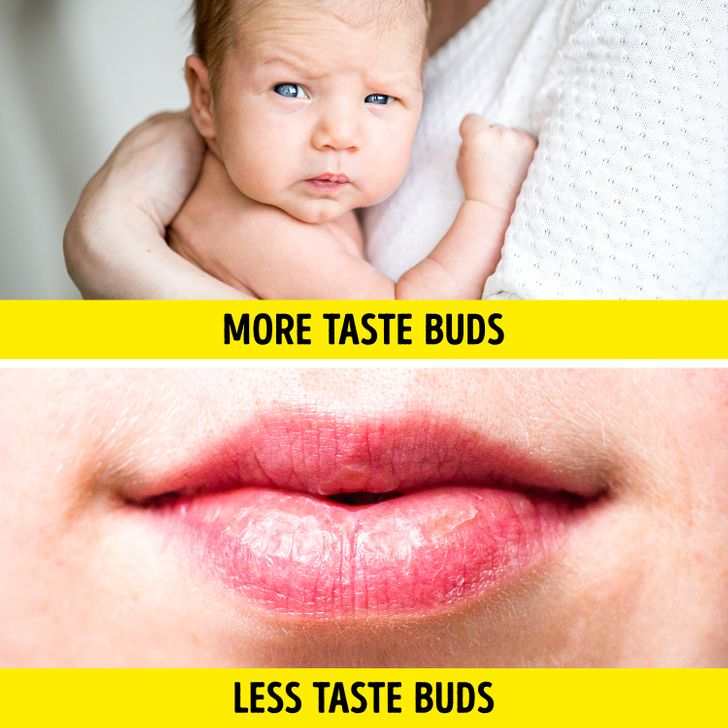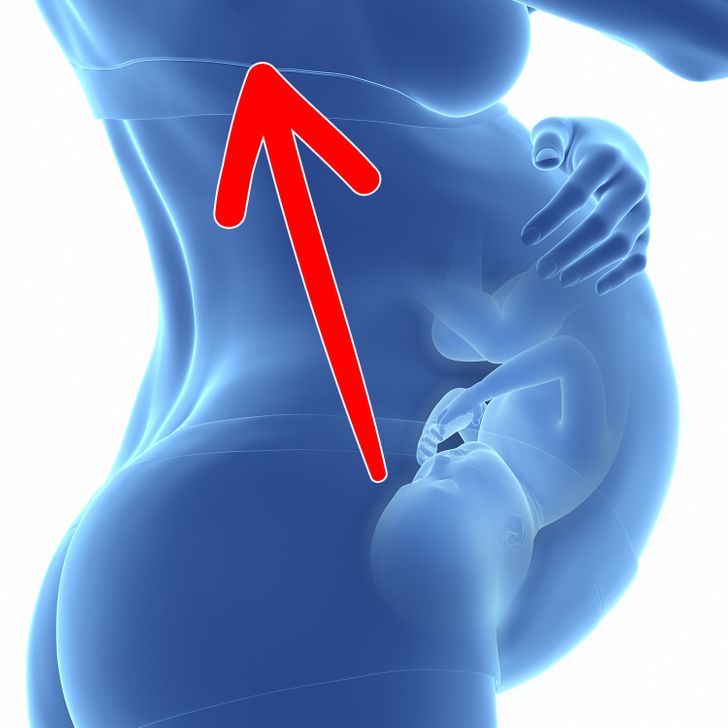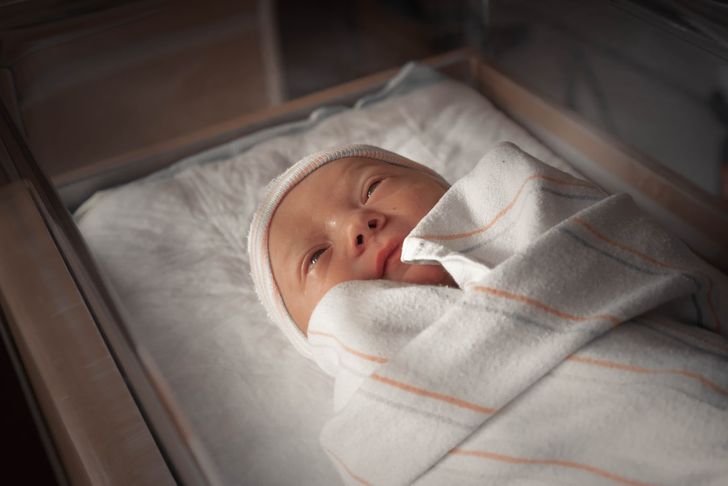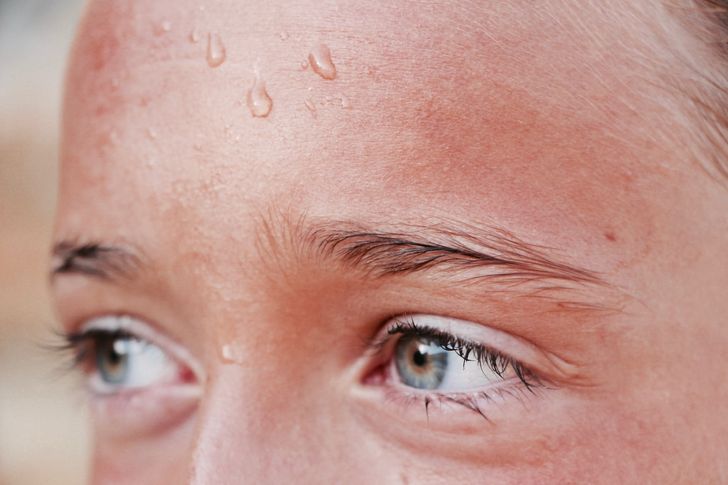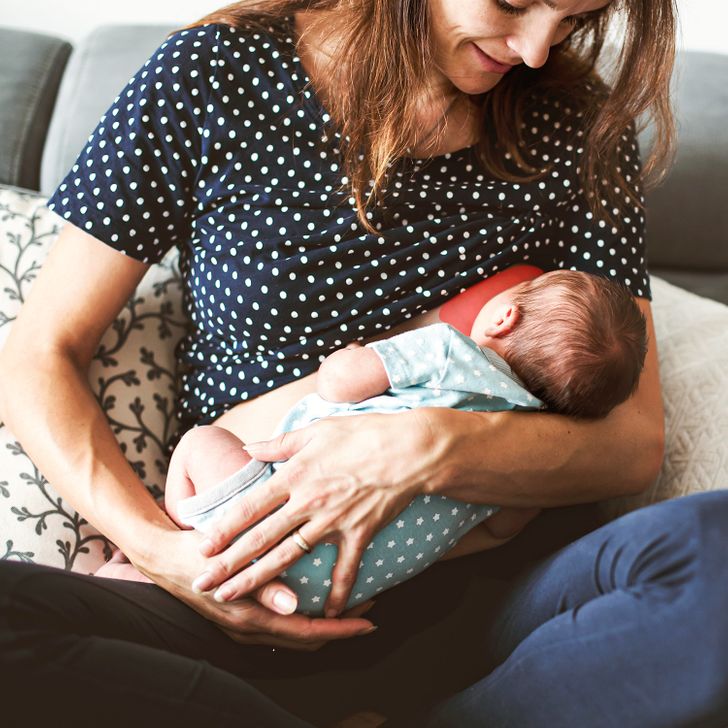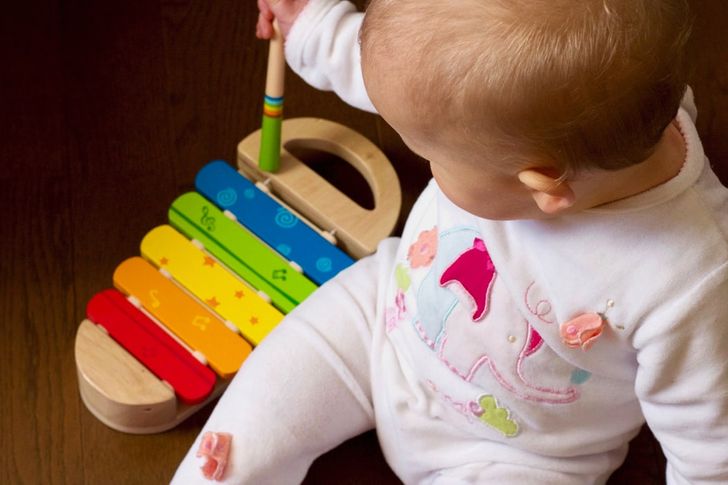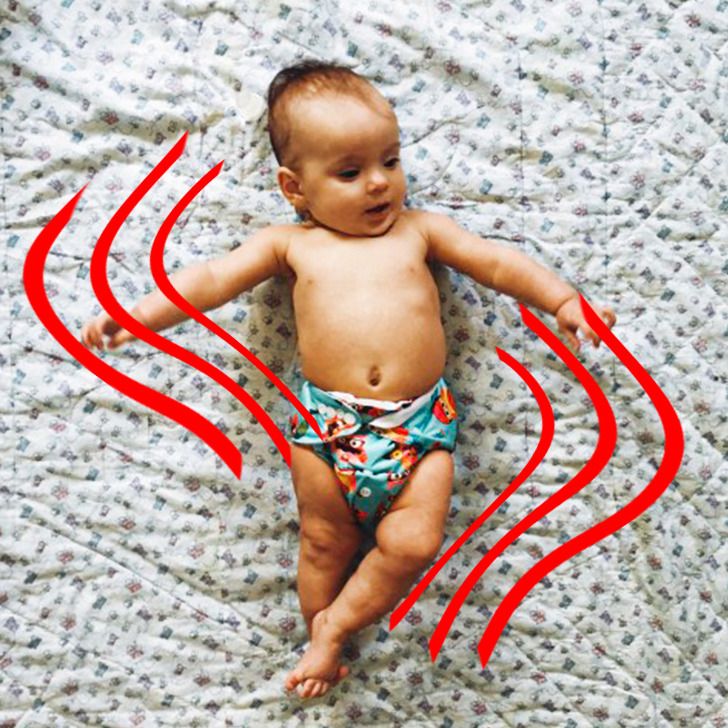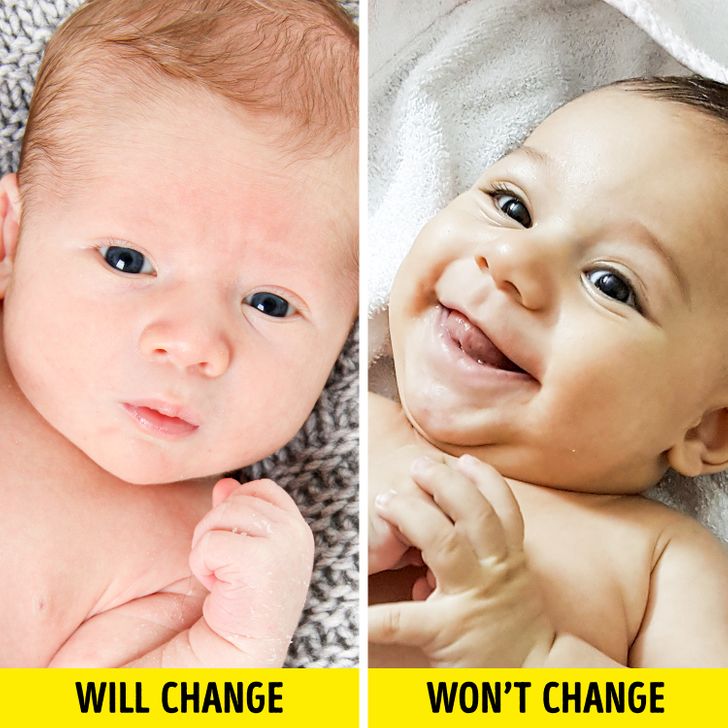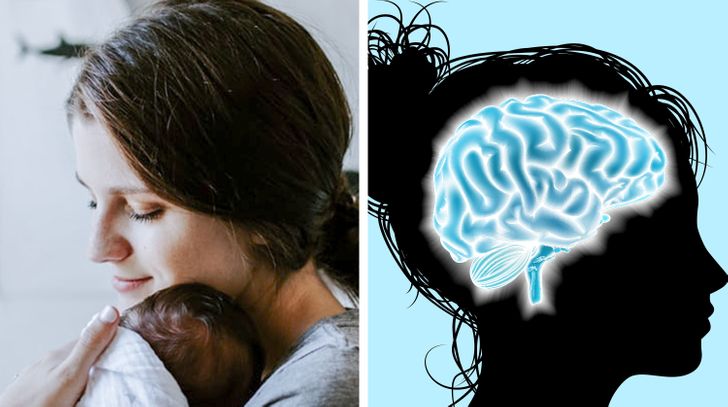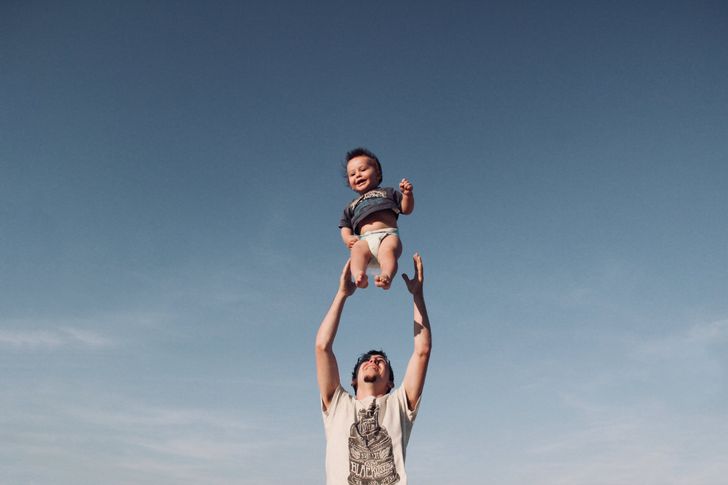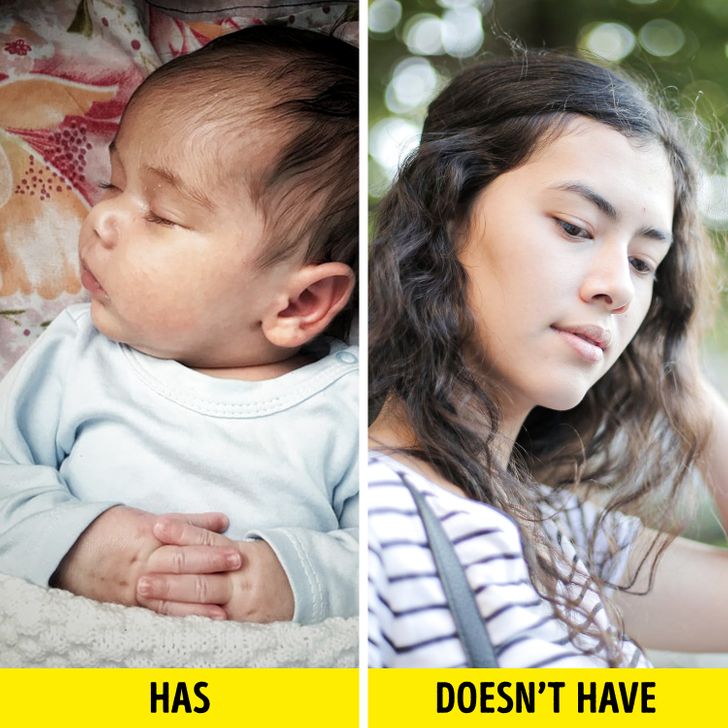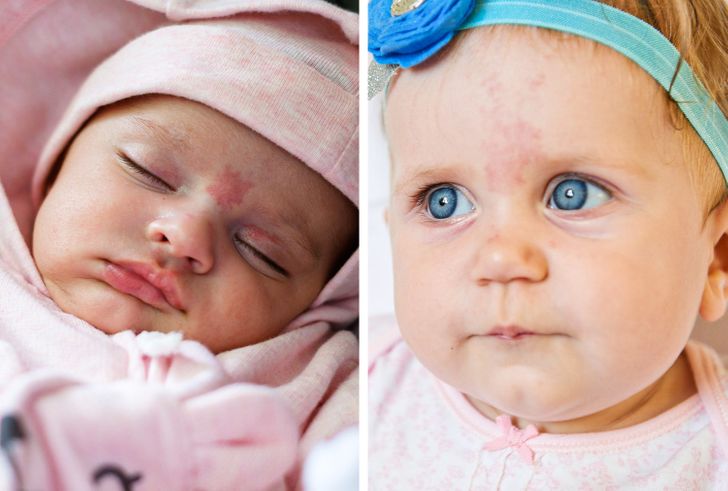Reading about Babies not shivering, made me shiver ha ha what's wrong with me? ?
12 Cool Things Adults Had No Idea Babies Could Do
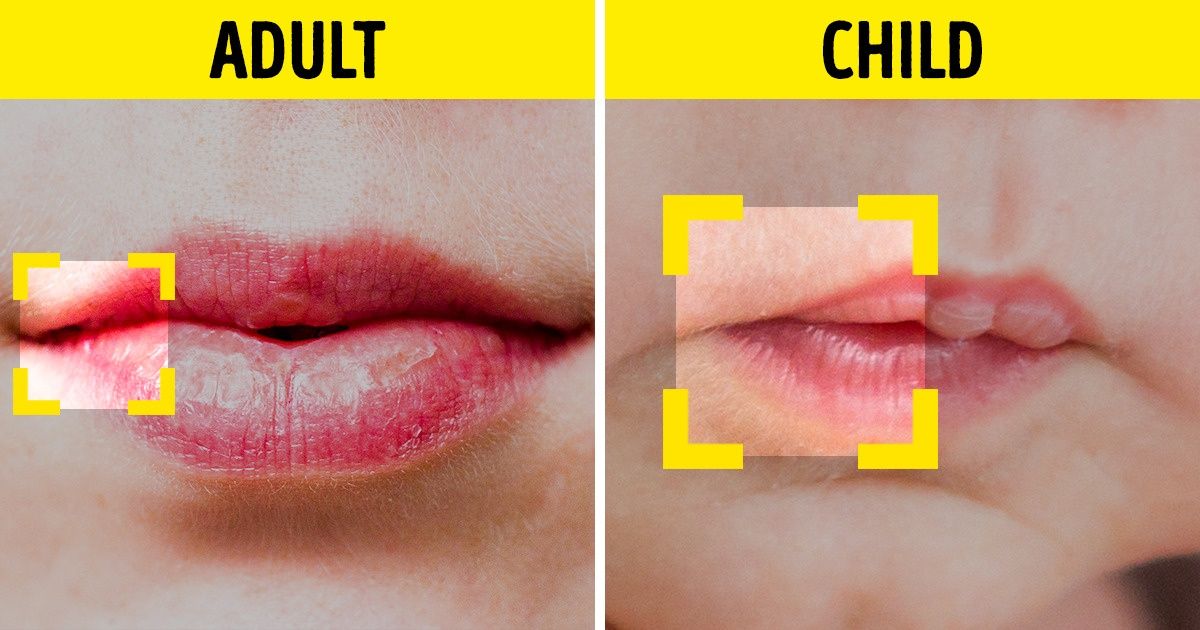
A newborn baby seems like a helpless nubbin who requires constant help from adults. This is true, but only partially. In fact, babies are much stronger than we think: they are able to manipulate their mother with the help of chemical impulses, they sleep with their eyes open, and they are not afraid of heights.
Bright Side studied facts about newborn babies and about babies who are just about to come into this world. Turns out, they are real superheroes.
Newborn babies experience taste better than adults (for an unusual reason).
A baby’s tongue, mucous membranes, and palate have more taste buds than an adult. Some scientists believe that this bunch of buds is required for exploring their surrounding world. Perhaps, babies also feel, more than just taste, when licking objects. According to the theory of synesthesia, signals from one sensory system may end up in another system. For example, when a person can see the color of music or feel the smell of words. Something similar happens to newborn babies.
- Due to a big number of neurons and taste buds, babies get more information about objects than adults, by simply licking toys, hands, and other things surrounding them. When we get older, we prune unnecessary neural connections and perceive the world in a normal way.
A baby can restore their mother’s inner organs.
Some babies sleep with half-opened eyes and sometimes this manner of sleeping can scare parents.
Doctors say there is nothing to be scared of: half-opened eyes indicate that the baby is in the phase of Rapid Eye Movement (REM sleep — it’s in this phase that we see dreams and process the information we got during the day). Adults spend 25% of their time each night in this phase, while children spend as much as 50% of their time there. It helps kids to train their memory and improve their nervous systems.
- It’s because of the predominance of REM sleep that it can be difficult for young parents to put their baby to sleep.
Newborn babies don’t sweat and cry without tears.
In the first weeks of life, babies cry without tears and almost don’t sweat. All this is due to the underdevelopment of the lacrimal ducts and sweat glands. There are 2 types of sweat-producing glands in our body: the apocrine ones that aren’t activated until adolescence, and the eccrine ones that are activated a few weeks after birth.
- That’s why it’s so important for parents to make sure that their baby does not get overheated. It’s dangerous to wrap the baby in several layers — since newborns are not able to cool themselves down yet.
Newborn babies are able to sense the heat signals of their mothers.
Nature supplied newborns with peculiar temperature sensors. If immediately after birth, the baby is put on the mother’s breasts, they will make their way to the nipple and start to eat. Italian doctors conducted a small study and found that the temperature of the baby’s lips is lower than the temperature of the mother’s breasts. Due to this difference, the child can find their food source.
- Scientists think that women can give heat signals to their babies and that the babies are able to feel them.
A newborn has more neural connections than an adult.
Children are born with 100 billion neural connections in the brain. That’s 2 times more than adults have. Moreover, the volume of a baby’s brain is much smaller. This means that, in some way, babies think more than their parents: babies need to grasp a huge amount of information during their first year of life. However, the brain prunes extra synaptic connections by the age of 3, in order to optimize its work.
- If the pruning of synapses doesn’t go according to plan, then a person might end up becoming either a genius, autistic, or even schizophrenic.
When an adult feels cold, they shiver, but a baby doesn’t.
Newborns don’t shiver if they feel cold. They have a special way to accomplish thermal regulation: 5% of the body of this tiny person is occupied by brown adipose tissue. This protects the baby from overcooling, which is why babies are less sensitive to cold than adults. Adults don’t have this type of thermal regulation.
- If you notice that the baby is trembling, this may indicate neurological problems or that the baby is simply hungry.
Babies can change their eye color, but it doesn’t happen to all of them.
Babies are able to change their eye color. Some babies are born with blue or dark blue eyes, but that won’t last long. The thing is that the color pigment melanin in our body is not produced immediately. Parents can only guess which eye color their child will have. With one exception.
- Brown-eyed babies won’t change the color of their eyes — their body has enough melanin. At the same time, the blue-eyed babies will become green-eyed or brown-eyed in 4 out of 5 cases.
Babies manipulate their mothers with the help of chemical impulses.
It has been arranged by nature that babies can directly affect pleasure centers in their mother’s brain. When a woman inhales the smell of her baby, a complex chemical reaction starts — dopamine, a substance responsible for pleasure, enters the bloodstream. We feel almost the same type of pleasure when we eat after feeling hungry or when we drink after being thirsty.
- It’s not just their mothers that babies can manipulate: the baby smell affects even women who have never given birth to a child. But that effect just won’t be as strong.
Kids are not afraid of heights, up to a certain age.
Scientists say that babies are not afraid of heights for up to 9 months. They get that fear only when they have learned how to crawl. When it comes to younger babies, their lack of information is the reason for this kind of bravery. When a child begins to move independently in space, the brain receives data from their peripheral vision and learns to adjust its balance.
- When the baby is lying in one spot, their world is steady and predictable, that’s why they have no fear.
All babies are gold, literally.
Gold is found in soil, water, plants, and even in the human body in tiny amounts. On average, we possess about 0.2 grams of pure gold in our bodies. But our babies are literally golden — the concentration of this metal in their hair is 2 times more than in the earth’s crust.
- Experts believe that this concentration of gold is formed due to breastfeeding, and by 3 months the content of the metal goes back to normal.
Half of all babies have special marks when they are newborns.
Red spots on the bridge of the nose, at the eyes, and on the back of the head are found in almost half of all newborns. They are known as “stork bites” or “angel kisses” among people. These spots become brighter when the baby is crying or shouting. These are expanded blood vessels that pose no health hazard. In most cases, they disappear by themselves.
- “Stork bites” can manifest themselves in the heat at an older age and you don’t need to do anything about them.
Do you have kids? What was the biggest thing that surprised you about them after they were born? Please share your baby’s achievements with the whole world.
Comments
Oh I see now. When I was a child my dad also used to play with me by throwing me up like this. I loved climbing tall trees and was literally never scared. But now just the thought of it makes me feel sick to my stomach ?
I read somewhere that giving birth to a baby kind of "renews" woman's body and makes her healthier in general, not just organs
Funny pictures
is it me but I think that babies are more sensitive to the spirit world
Related Reads
I Absolutely Refuse to Give Up My Apartment for My Sister and Her 3 Kids

10 Times Micromanaging Bosses Got Exactly What They Asked For—And Regretted It

I Accepted My Father’s Inheritance—And It Ruined My Life

I Refuse to Return My Late Colleague’s Paycheck, Now His Widow Is Furious

10 Moments Where Kindness Didn’t Argue—It Acted

I Refused to Watch My DIL Give Birth— She Made Sure I Regretted That Moment

11 People Whose Small Acts of Kindness Turned Tears Into Smiles
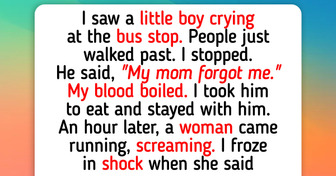
I Refused to Pay for Our Valentine’s Dinner—Then I Learned the Heartbreaking Truth

13 Stories That Show Kindness Is the Calm in Every Storm

I Refused to Talk to My Parents After They Chose My Ex-Wife Over Me

15+ Stories That Prove Some House Guests Are Impossible to Forget

My MIL Tried to Humiliate Me at the Altar—By Morning, She Wasn’t Laughing

